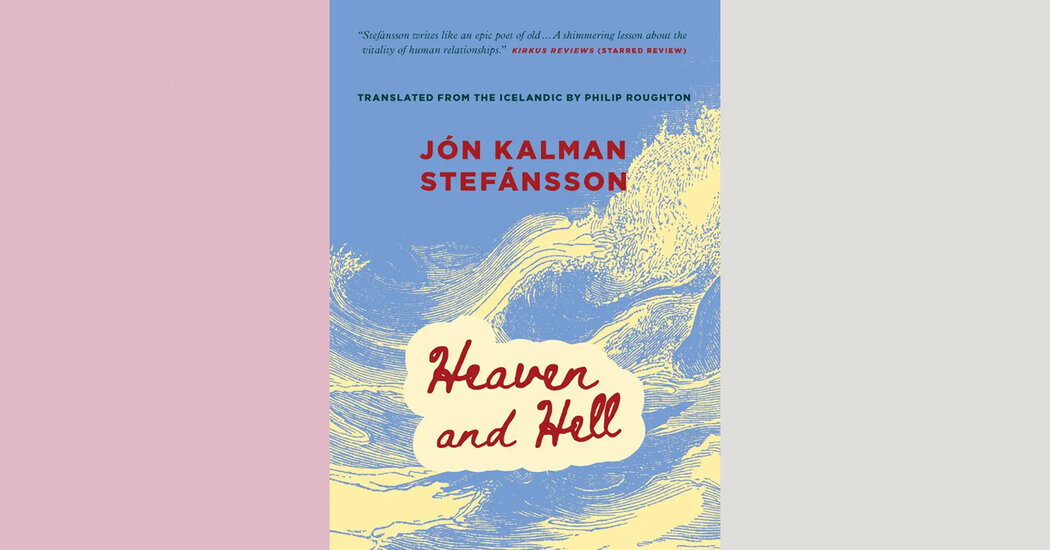HEAVEN AND HELL, by Jon Kalman Stefansson; translated by Philip Roughton.
“Every great and original writer,” wrote William Wordsworth, “must himself create the taste by which he is to be relished.” The Icelandic writer Jon Kalman Stefansson, whose style impresses the reader as idiosyncratic at first, then irresistible, certainly meets that mandate in his 2008 novel “Heaven and Hell,” now published in North America for the first time.
The setting is a remote Icelandic fishing community at an unspecified time in the past — the characters “are little more to you than names on leaning crosses and cracked headstones” — but probably the late 19th century. (The only marker we’re offered is a newspaper report that Émile Zola has recently published a new novel.) It’s a place where men think little and say less, where actions seem to count more than words, and where chins are invisible under enormous beards. “If one of them made the mistake of shaving,” it would constitute “a part of his personality cut off, nothing but half a man remaining.”
Not everyone is a stereotype in this story about a fishing trip and its aftermath. On board the small boat — a “sixereen” — is Bardur, who reads an 1828 translation of Milton’s “Paradise Lost,” despite the general view of his crewmen: “For a sea captain to value poetry as highly as fish, well, what kind of captain is that, in fact?” Also present are Bardur’s friend, known only as “the boy”; the skipper, Petur (“his words are law”); and three others.
Stefansson’s narrative voice is the book’s most striking quality. It has something in common with the “slow prose” of Jon Fosse: run-on sentences, rich in repeated motifs, that tap into different layers of thought. A typical line in Philip Roughton’s translation is flexible and supple, telescoping from close-up to wider view: “The stove heats the loft, it’s cozy here, the evening condenses against the windows, the wind strokes the rooftop, Gvendur and Einar chew tobacco, rock in their seats, sigh well and mmm hmm alternately, the paraffin lamp gives a good light and makes the evening outside darker than it is, the more light, the more darkness, that’s the way of the world.”
